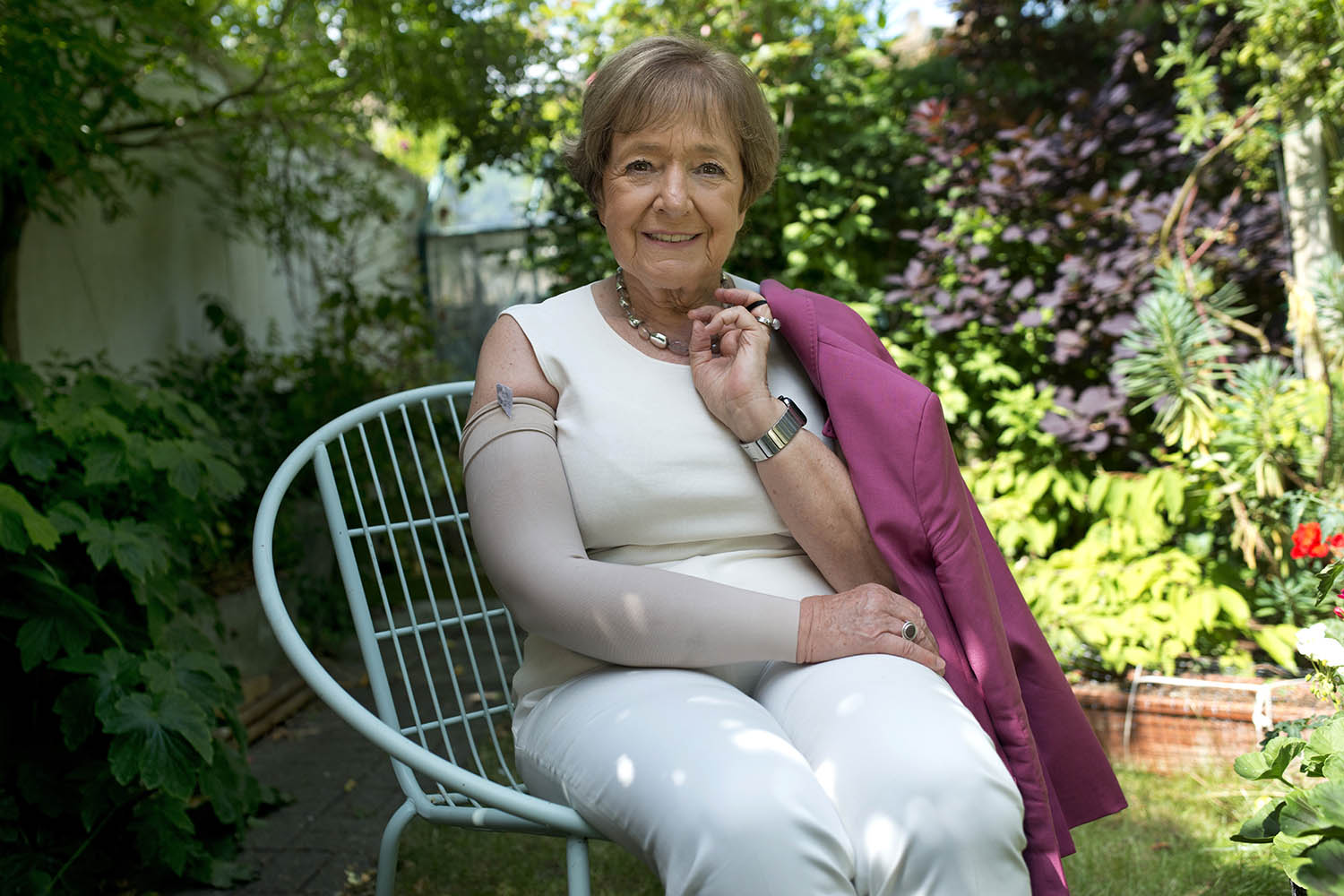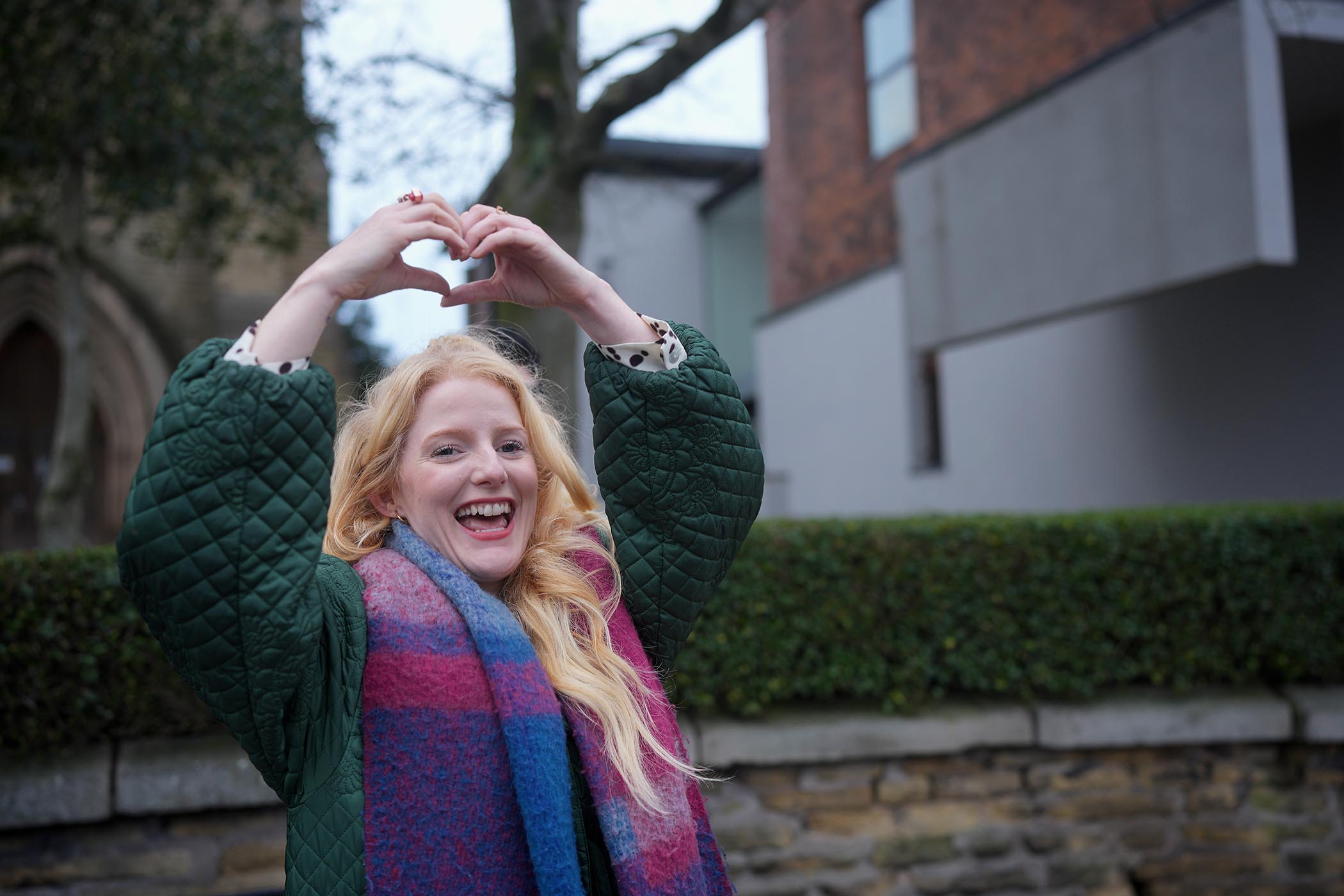Margaret Hodge had a sister and an aunt who were both diagnosed with breast cancer. “It’s prevalent in my family,” says the former minister and Labour peer. “Then my daughter got it and I thought: ‘Oh my God, I haven’t had a mammogram for ages.’”
Now 80, Lady Hodge had stopped receiving invitations to breast screening because the NHS does not routinely offer mammograms to women over the age of 70. When she stood down as an MP at last year’s election, she rang her GP up and asked to be screened.
The results that came through in November were a “terrible shock”, she says. “They found a tumour and it was cancerous, so I had to get my head around that. Then I had more and more tests. Every time they did another test, they found another tumour. They ended up finding three small tumours in the breast.”
Hodge had surgery and “came back thinking: ‘Thank God that’s all over’”. Then, just after Christmas, the consultant got in touch again. “He said to me: ‘You’ve got a busy breast, Margaret.’ They had found some more in the biopsy they did on the tissue that they had taken. So I had a second operation, which, at the age of 80, was quite heavy going when I had never had an operation in my life before.”
Since then she has had radiotherapy and is continuing to have treatment with three preventative drugs. “I’m back at work but I’m knackered,” she says.
Hodge, the former MP for Barking, was in the cabinet of the last Labour government, serving, among other posts, as the inaugural minister for children under Tony Blair, and minister for culture tourism under Gordon Brown before becoming chair of the public accounts committee. She was made a life peer last year and is now running a review of Arts Council England, as well as serving as the government’s anti-corruption tsar.
‘Raising the age limit will cost more on screenings but it will save money treating women and allow us to live longer’
‘Raising the age limit will cost more on screenings but it will save money treating women and allow us to live longer’
Margaret Hodge
She says the emotional strain of her cancer diagnosis has been as gruelling as the physical impact. “You suddenly confront the idea of death. My mother died when I was 10, my husband, Henry, died far too young when he was 65. My daughter-in-law was killed when her children were four, six and eight. She was training for a run in Leeds and got run over on the ring road. My brother’s died. My best friend has died. So I’ve had to deal with a lot of death in my life.”
But until last year she had never considered her own mortality. “I never really think about being 80. It’s scary but, on the other hand, I have had an incredibly full life.”
The care she has received from the NHS “has been brilliant”, she says. She was astonished to discover, however, that the health service does not routinely invite older women for breast cancer screenings.
“I asked why I wasn’t given an automatic right to a mammogram and they said it stops at 70. I thought this was crazy. This was set in the mid-1980s when the average age of women’s deaths was 76. Now it’s 83. That’s quite a change but the system has not responded.”
Newsletters
Choose the newsletters you want to receive
View more
For information about how The Observer protects your data, read our Privacy Policy
Hodge has raised the issue with Wes Streeting, the health secretary, and now plans to table amendments in the House of Lords to ensure the upper age limit is raised. “It will cost a bit in the short term with the mammograms but it will save money in terms of treating women and it will allow us to live longer,” she says.
“The NHS has spent a fortune on me. If they had caught it earlier, would I only have had that one operation and then a tiny bit of radiotherapy? You never know.”
New artificial intelligence scanners that are being rolled out will drive down the cost, she adds. “All the professionals I’ve talked to who are working in the field agree. It’s a common sense thing and it will save lives.”
Breast screening is offered to all women between the ages of 50 and 70. The programme tests apparently healthy people every three years for early signs of cancer. Overall, it finds the disease in about nine out of every 1,000 women screened.
Women over the age of 70 in the UK are still able to request a mammogram though their GP but they are not automatically invited.
The NHS in England is currently considering an extension to the age at which women are invited for breast screening. A trial that is looking at the risks and benefits is expected to publish initial findings next year but the final results for the study will not be available until 2032.
Michelle Mitchell, chief executive of Cancer Research UK, which is funding the trial, says screening “is offered at ages when the benefits are biggest and the harms are the smallest. This is an evidence-based process.”
However, Hodge believes that the current screening rules are “writing off older women” such as herself. She thinks it is part of a wider ageism and sexism in society. “Yet again, it’s men taking decisions about women’s lives.”
“When people talk about older people, they never talk about cherishing our contribution, they never talk about valuing our experience – it’s all about social care, ill health and grandchildren,” she says. “I adore my grandchildren but I want to carry on contributing. I’ve still got ambition to make the world a better place.”
Women face particular discrimination, she says. “You don’t see older women on TV very much. I don’t think I’d ever get asked on to [BBC] Question Time again because of my age.”
But Hodge argues that she has even more to offer in her 80s than she did in her 30s. “I’ve got experience and knowledge so I’m wiser in the way I approach things, I really am. It took me all those years of being a minister under Tony Blair and Gordon Brown to understand how you achieve change.
“Your approach is different, you’ve seen issues before and so you can understand how to deal with them. I deal with people in a much better way. I am 80, with two new jobs, and I’m not prepared to be written off.”
Photograph by Sophia Evans/The Observer



